Which Are The Best Fertilizers For Vegetables | The Ultimate Guide
by Lee Safin
Have you owned a vegetable garden? How do you feel when you see it is full of various colorful veggies? Unless you have the right type of fertilizers, you can’t achieve a healthy, large, and strong yield.
Are you wondering which fertilizer for vegetables to choose? After all, tons of options are available to confuse you. A soil test will determine what kind of soil you have and what fertilizer to use.
Wait! Not only this, do you think it is advisable to fertilize all vegetables equally and at the same time? Moreover, is it okay to use the same type of fertilizers for all types’ vegetables?
In this article, we will narrow down some professional recommended fertilizers for different types of vegetables. After reading the post, you will learn what the best fertilizer for a vegetable garden is? Let’s dive in!
Contents
- Best Fertilizer For Vegetable Seedlings
- Best Fertilizer For Potatoes
- Best Fertilizer For Tomatoes
- Best Fertilizer For Cucumbers
- Best Fertilizer For Carrots And Beets
- Best Fertilizer For Onions And Garlic
- Best Fertilizer For Spinach And Kale
- Best Fertilizer For Capsicum
- Best Fertilizer For Pumpkin
- Is Fertilizer Necessary For A Vegetable Garden?
- What Is The Best Fertilizer For A Vegetable Garden?
- What Is The Best Fertilizer For Fruits And Vegetables?
- What Vegetables Should I Fertilize?
- What Is The Best Fertilizer For Elephant Ears?
- What Is A Good Natural Fertilizer For Vegetables?
- Best Fertilizers For Different Countries
- Conclusion

Best Fertilizer For Vegetable Seedlings
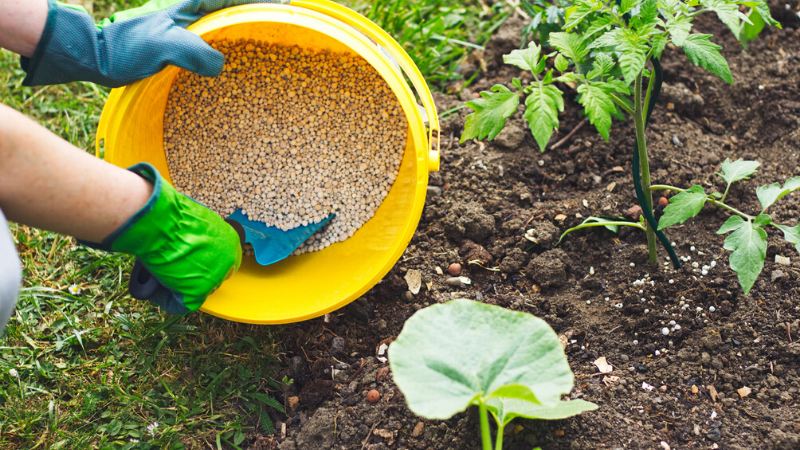
Are you looking for the best fertilizer for vegetable seedlings? According to most garden experts, water-soluble fertilizers are the best option for vegetable seedlings.
Fertilization is important for vegetable seedlings as it ensures the proper of the plants in the future. By using all-purpose, supplemental fertilizer, you can ensure the natural growth of your vegetable plants.
Here we are mentioning some fertilizers, known as the best fertilizer for vegetable seedlings.
1. Neptune’s Harvest Fish & Seaweed Fertilizer


This fertilizer effectively turns your dull vegetable garden into a beautiful vegetable garden full of fruits. Most importantly, it makes your plants healthy.
That’s why many users rated this fertilizer as the best fertilizer for vegetable seedlings. The fertilizer is easy to use and apply —it can make the fruits more colorful too.
2. Neptune’s Harvest Fish Fertilizer


Here comes another best fertilizer for vegetable seedlings. The manufacturer uses a special cold process to make this fertilizer retain its nutrition level.
Fresh North Atlantic fish are used to make this organic fertilizer, which is free from any odor. The inclusion of all essential micro and macronutrients makes it an ideal choice for most gardens.
3. Liquid Kelp Organic Seaweed Extract
No products found.
No products found.
Treating your summer vegetable seedlings with this fertilizer is the best thing you can do. The product ensures natural active growth.
You have no reason to worry as it is free from harmful chemicals, making it the best fertilizer for vegetable seedlings from this brand.
This natural and high-quality fertilizer is effortless to apply. You will get consistent and reliable results within a short time.
Best Fertilizer For Potatoes
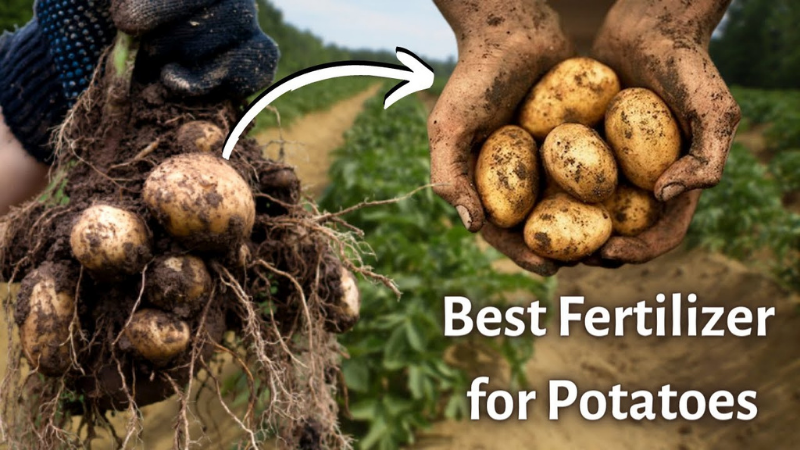
The growth of potato plants will not be optimal unless you choose the best fertilizer for potatoes. Choosing an organic and high-quality fertilizer is essential to ensure the right nutrition for potatoes from different sources.
So, how do you which are the best fertilizer for potatoes? Check out these:
1. HARRIS Diatomaceous Earth Food Grade —Best Fertilizer For Potatoes
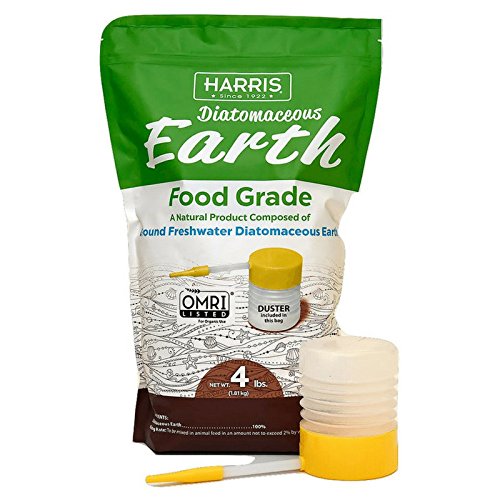

This is a budget-friendly and organic fertilizer. It can boost your soil efficiency, and it contains almost the essential nutrition.
2. Urea Fertilizer – 46-0-0-5 —Best Fertilizer For Potatoes
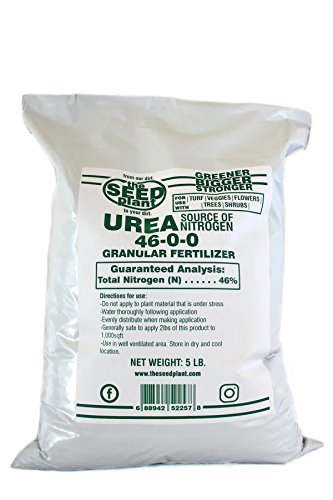
No products found.
This fertilizer contains 46% Nitrogen by weight, which comes in a water-soluble form. It is free from toxins and can easily mix with the soil.
3. Espoma Garden Food—Best Fertilizer For Potatoes
No products found.
No products found.
This fertilizer increases the microbial activity of your garden soil. It is enriched with a high phosphorus ratio and provides rapid absorption, making it the best fertilizer for potatoes.
Best Fertilizer For Tomatoes
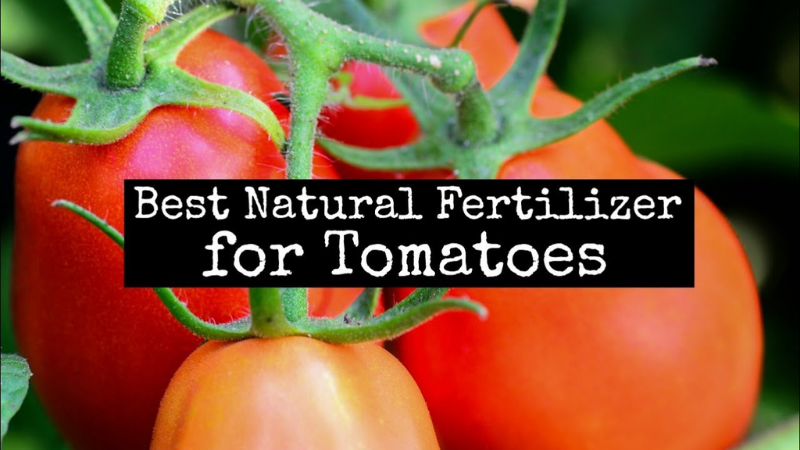
Are you wondering which is the best fertilizer for tomatoes? While choosing the best fertilizer for tomatoes, you want to ensure it contains all the essential micronutrients for proper growth.
These nutrients are required in various proportions depending on the stage of tomato growth. So, how do you which are the best fertilizer for tomatoes? Several of them are listed below for your viewing pleasure:
1. Miracle-Gro Tomato Plant Food — Best Fertilizer For Tomatoes
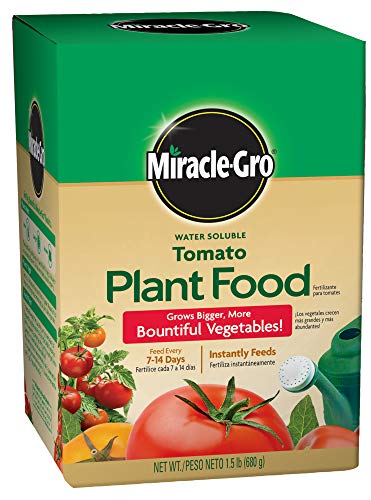

This fertilizer can provide quick results, and it is suitable for most tomato plants. It is completely safe and easy to mix and apply.
2. Osmocote 277160— Best Fertilizer For Tomatoes


The fertilizer is an ideal option for perennials. It stimulates the uptake of nutrients from the soil and promotes root growth.
3. Jobe’s Tomato Fertilizer Spike— Best Fertilizer For Tomatoes


If you are looking for a fertilizer for your potted tomatoes, it is a perfect one to consider. It provides long-lasting results while nourishing the plant root.
Best Fertilizer For Cucumbers
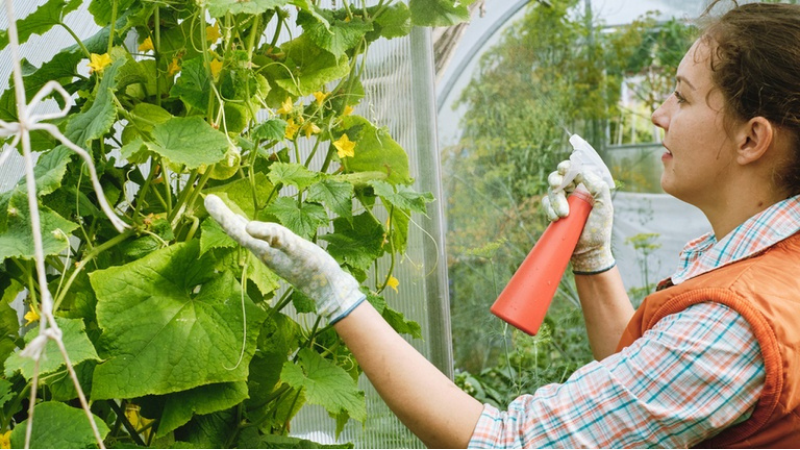
A wide range of cucumbers fertilizers is available in the market. But the best fertilizer for cucumbers ensures proper growth and increases the size of the fruit.
So, what is the best fertilizer for cucumbers you should choose? It must have a well-balanced nutrient ratio and doesn’t contain any harmful chemicals.
So, here are the 3 top fertilizers if you are seeking the best fertilizer for cucumbers.
1. Osmocote Flower & Vegetable Plant Food — Best Fertilizer For Cucumbers


If you want to ensure vigorous growth for your cucumber plants, it is a perfect option. You can use this fertilizer for up to 4 months to ensure excellent root development.
2. Old Farmer’s Almanac Vegetable Fertilizer— Best Fertilizer For Cucumbers


If you want to produce organic cucumber, it is must-have fertilizer. The unit promotes strong and healthy roots by providing high-quality protein-based nutrition.
3. Dr. Earth Organic Vegetable Fertilizer— Best Fertilizer For Cucumbers


This probiotic fertilizer contains seven specialized microbes and without any genetically modified organisms. Cucumbers grow best on this plant because of their levels of nutrients.
Best Fertilizer For Carrots And Beets
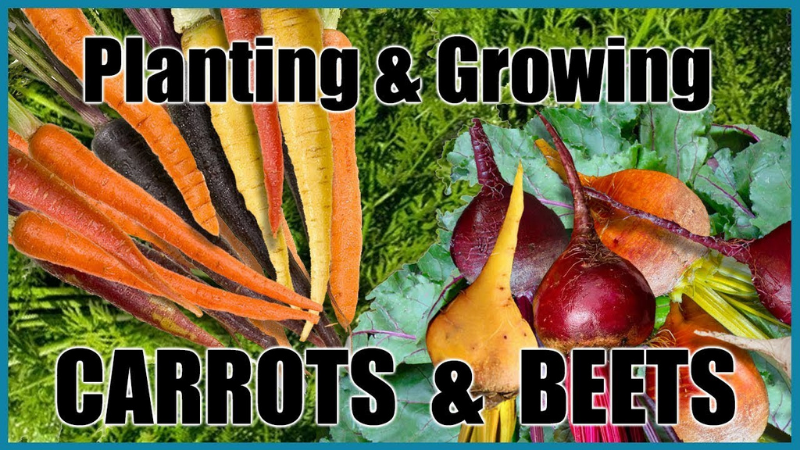
Are you looking for the best fertilizer for carrots and beets? Carrots and beets require fertilizers, which have more phosphate, potassium, and little nitrogen.
Unless they have this type of balanced nutrition, you can’t call it the best fertilizer for carrots and beets. Here are we mentioning few high-quality fertilizers, known as the best fertilizer for carrots and beets.
1. Masterblend Vegetable Fertilizer — Best Fertilizer For Carrots And Beets


This fertilizer is a great choice if you need a huge quantity. It is enriched with all the necessary trace minerals to boost the growth of carrots and beets.
2. Miracle-Gro Nature’s Care— Best Fertilizer For Carrots And Beets


This natural fertilizer produces bountiful harvests and gives quick results for carrots and beets.
3. Espoma Plant Food— Best Fertilizer For Carrots And Beets


Containing all-natural ingredients, the fertilizer ensures maximum growth for your vegetable. With 15 nutrients, it provides the essential calcium your plant need.
Best Fertilizer For Onions And Garlic
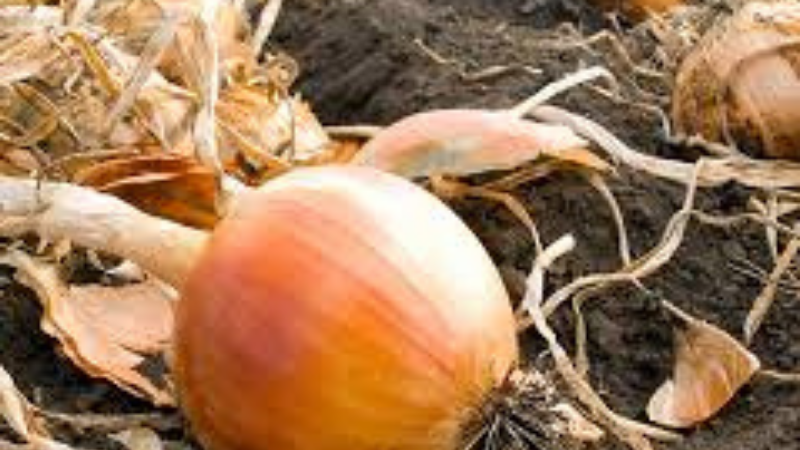
Are you in a hurry for the need of the best fertilizer for onions and garlic? Onions and garlic need a decent amount of nitrogen. Apart from that, these heavy-feeders also need a proper of phosphorus and potassium.
Hence, while looking for the best fertilizer for onions and garlic, you must ensure they have these ingredients.
1. Burpee Organic Bone Meal Fertilizer — Best Fertilizer For Onions And Garlic


This fertilizer is especially great for young plants. It encourages stronger roots, brighter blooms, and more delicious vegetables. It ensures early growth.
2. Lilly Miller 100099247 — Best Fertilizer For Onions And Garlic


The Lilly Miller contains 100% organic ingredients and is enriched with 11 vitamins. It stimulates the growth of microorganisms without burning the soil.
3. Chelated Liquid Iron — Best Fertilizer For Onions And Garlic
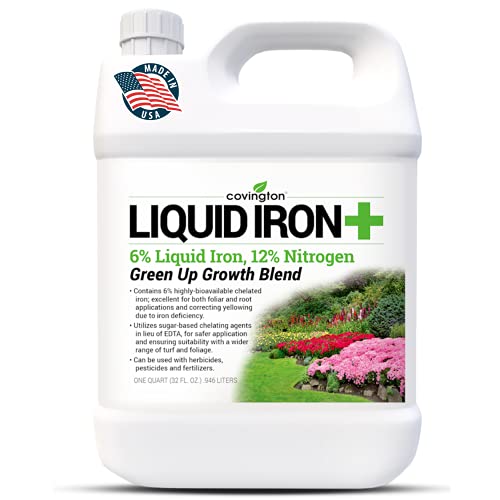

This organic fertilizer has balanced nutrition to make your plants healthy and increase onion and garlic production.
Best Fertilizer For Spinach And Kale
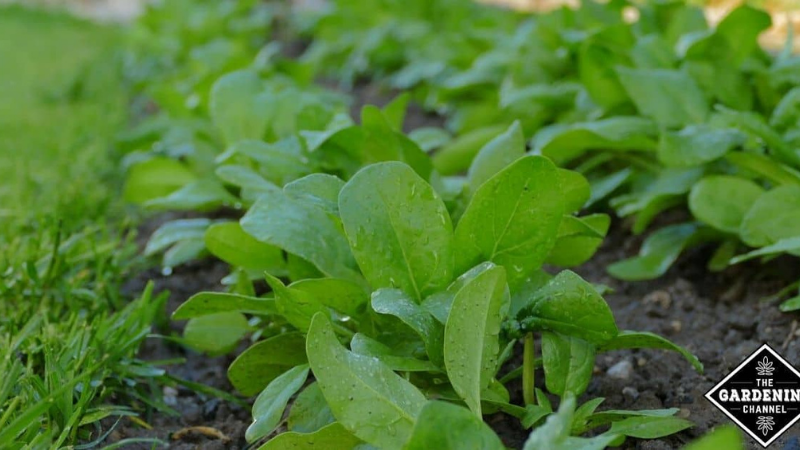
Spinach and kale need a wide range of nutrition for optimal growth. A decent amount of fertilizer with the right amount of nitrogen is necessary for them. Only then can you take it as the best fertilizer for spinach and kale.
So, the best fertilizer for spinach and kale should contain the right combination and quantity of nutrients.
1. Jobe’s Organics Herb Fertilizer Spikes — Best Fertilizer For Spinach And Kale
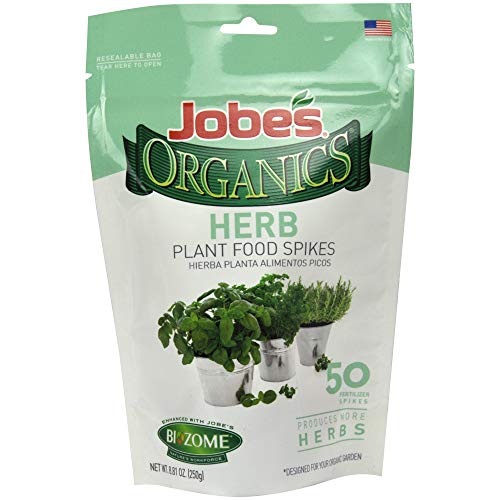

This water-soluble fertilizer works great for spinach and kale, and it works instantly to feed all the essential nutrition in the right amount your plants need.
2. AeroGarden Liquid Nutrients— Best Fertilizer For Spinach And Kale
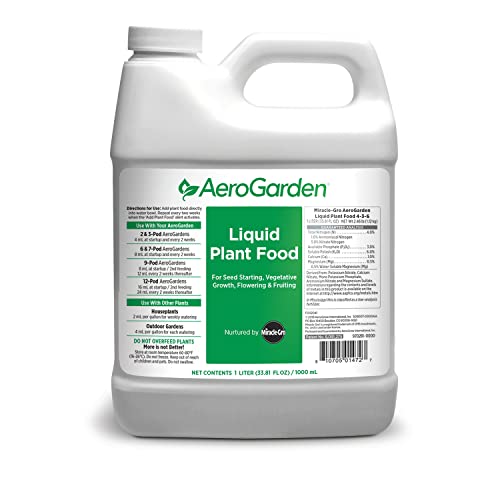

This liquid fertilizer ensures the best optimal growth for your plants with its right mixture of nutrition. It is completely harmless despite being inorganic.
3. Espoma GT4— Best Fertilizer For Spinach And Kale


Espoma is an excellent fertilizer, which contains 100% natural and organic ingredients. It is suitable for various vegetables and can cope up with your garden soil easily.
Best Fertilizer For Capsicum
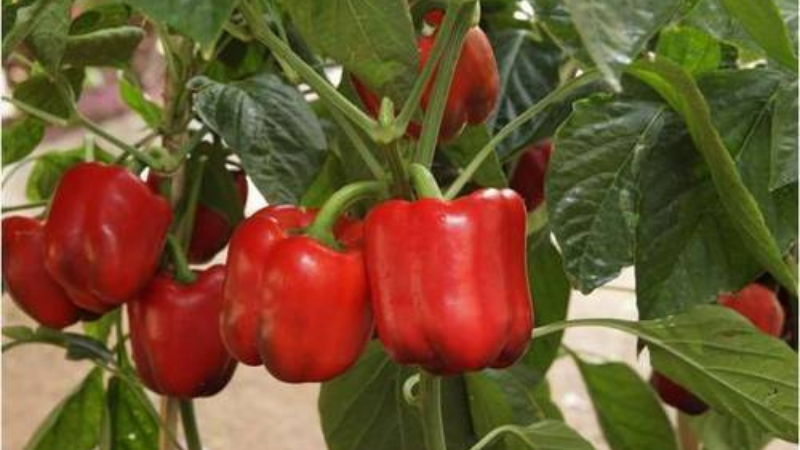
Are you looking for the best fertilizer for capsicum? When searching for the best fertilizer for capsicum, it must have a higher portion of phosphate and potassium while a lower amount of nitrogen. Only then it will be a balance and complete fertilizer for capsicum. Here are the few fertilizers known as the best fertilizer for capsicum.
1. Jobe’s Organics 9026 Fertilizer — Best Fertilizer For Capsicum


This certified and organic fertilizer provides quick results. It protects the plants from various unfavorable conditions while boosting overall growth.
2. General Hydroponics Flora Combo Fertilizer— Best Fertilizer For Capsicum


When you are looking for a PH balanced, secondary, and micronutrient fertilizer, it is the best option you can consider. It has an excellent formulation for enhanced growth and better crop quality.
3. Plant Magic — Best Fertilizer For Capsicum
![Organic Plant Magic - Super Premium Plant Food: 100% Organic, All-Purpose Soluble Powder, Plant-Boosting Microorganisms And Minerals, Perfect For All Plants, Nontoxic, Kid & Pet Safe [One 1/2 Lb Bag]](https://m.media-amazon.com/images/I/515dHYRrAXL.jpg)

This magic fertilizer also works like magic to grow healthy plants with its effective formula. Capsicum plants will immediately benefit from the nutrients included in this blend, which helps improve the soil’s condition.
Best Fertilizer For Pumpkin
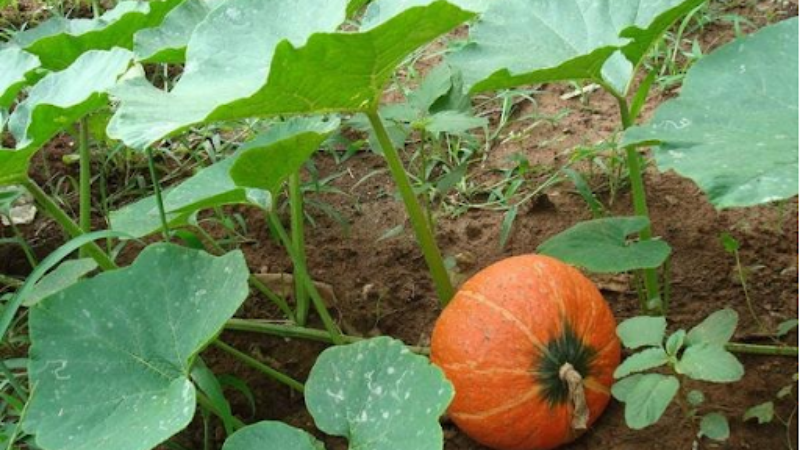
Do you know what the best fertilizer for pumpkin is? Fertilizers with high potassium and phosphate but low levels of nitrogen are the best fertilizer for pumpkin.
Using excessive nitrogen in vegetable plants will make it only huge but won’t produce many fruits. However, all three ingredients are needed in different stages of pumpkin plants. Here we are mentioning few fertilizers known as the best fertilizer for pumpkin.
1. Burpee Organic Bone Meal Fertilizer — Best Fertilizer For Pumpkin


This organic fertilizer contains many beneficial nutrients for pumpkin plants. You can use it in all seasons, and its formula is efficient, so you need less quantity.
2. Simply Silica 8oz Concentrate by Supreme Growers — Best Fertilizer For Pumpkin


A high-quality fertilizer like this one ensures proper growth of your pumpkin plants while increasing fruits size. It doesn’t contain any nitrogen or phosphorus but only potassium silicate.
3. Spade to Fork — Best Fertilizer For Pumpkin


Are you looking for a fertilizer for your young pumpkins? This option could be a better choice as it is eco-friendly and fully organic.
Is Fertilizer Necessary For A Vegetable Garden?
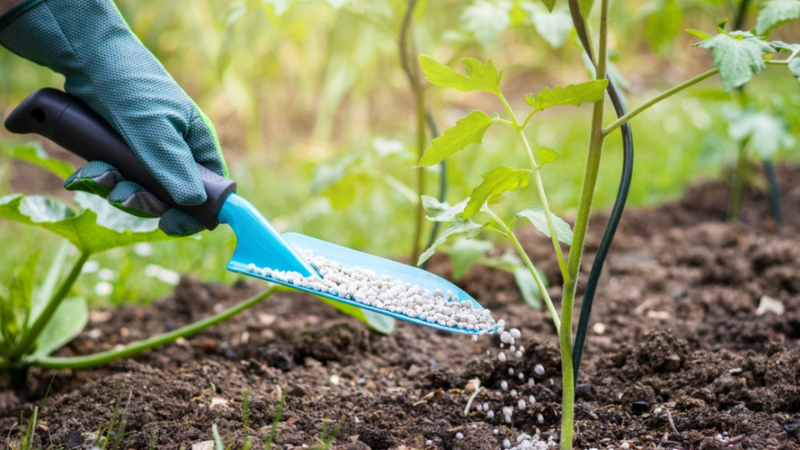
Yes! Fertilizing vegetables is necessary, especially for summer veggies. We know high-quality fertilizers contain various nutrients. These nutrients help the vegetables to grow fast and produce harvests.
You need to fertilize your vegetable plants regularly, especially during the growing season. If you don’t use fertilizers at the right time, the plants may not produce fruits.
At the start of the season, you need to use more high-quality fertilizers than at other times. The reason is that during the period, they need extra nutrition for proper growth and production.
What Is The Best Fertilizer For A Vegetable Garden?
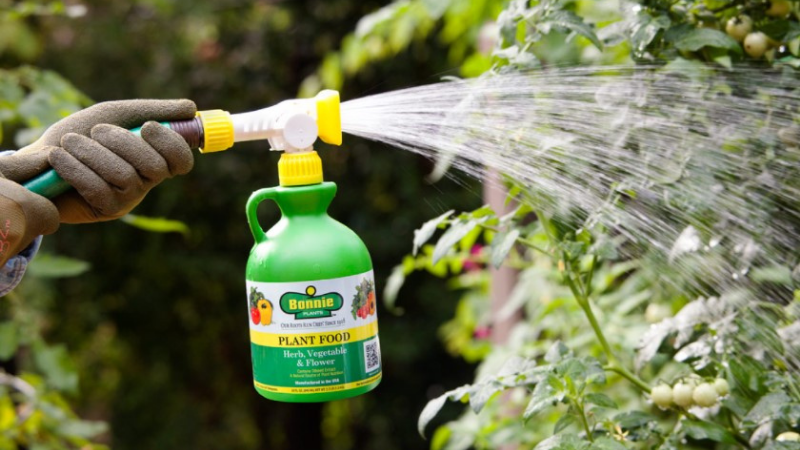
Two types of fertilizers are available for vegetable gardens: organic and inorganic. Natural fertilizers are made from organic materials, and they don’t possess any risk for the plants.
On the other hand, inorganic fertilizers contain synthetic chemicals, but they are infused with all three macronutrients in high doses. In addition, they give more effective results, but using them excessively will harm the vegetable plants.
What is the best fertilizer for a vegetable garden?
A complete fertilizer is the best option for a vegetable garden. It means you want to keep the phosphorus ratio double compared to potassium and nitrogen. For instance, it would be 5-10-5 or 8-16-8, etc. Stores nearby should have it in stock.
Many vegetable garden soils already have a sufficient amount of potassium. So, you don’t need to use a fertilizer that contains a high ratio of potassium. Though some extra portion of potassium won’t cause that much harm to the soil, using complete soil is still recommended.
Avoid using lawn fertilizers for your vegetable garden as they contain a high portion of nitrogen. Some of them also contain toxin ingredients that may harm or damage vegetable plants.
If your vegetable garden soil has less than 5.7 PH levels, you want to use lime. Using limes for ground makes it calcium-rich soil. However, make sure to use limes in the right amount at the right time without overdoing it.
Knowing the question of “What is the best fertilizer for a vegetable garden?” can help you take care of your garden properly.


Most vegetable fertilizers are balanced. The ratio of NPK is the same for both. However, as we told you earlier, complete fertilizers are better than balanced fertilizers if your garden soil already has enough potassium.
What’s more, organic soils are available in so many options. Organic fertilizers have the advantage that you can never overuse them. But using too much inorganic fertilizer can cause the roots to burn and result in huge injuries for the plant. Organic options usually don’t have this problem.
Lastly, make sure you determine which type of fertilizer is best for your garden. Do you prefer liquid or powders fertilizers? If you want short and quick results, liquid fertilizers are a better choice. The leaves of some plants can also be treated with these products. On the other hand, powder fertilizers first need to be mixed with water and then apply with the plant’s roots.
Are you still wondering about this question: what is the best fertilizer for a vegetable garden? We think we covered everything about the topic.
What Is The Best Fertilizer For Fruits And Vegetables?
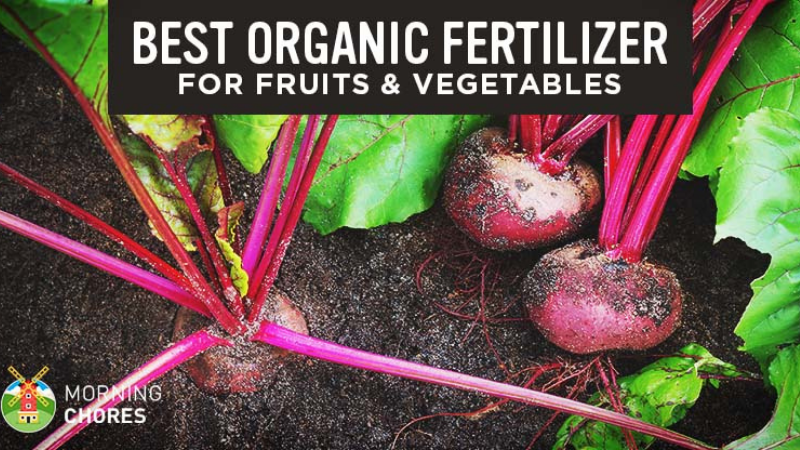
Are you new to gardening? Wondering what the best fertilizer for fruits and vegetables is? It might seem a little bit tricky task to choose the right fertilizer for vegetables and fruits.
As a newbie, you have a lot of questions. Do flower fertilizers work on vegetables? How do you know what the best fertilizer for fruits and vegetables is?
Fertilizers differ considerably from one another because there are a wide variety of needs for plants. Some fertilizers are perfect for many fruits and vegetables, while some are made for only a few fruits or vegetables.
There are around 1,097 vegetable species and 2000 types of fruits available around the world. Garden experts categorized vegetables in several categories such as
| Flower vegetables | Pod and seed vegetables | Leafy vegetables | Beans and Peas |
|---|---|---|---|
| Tuber vegetables | Red and Orange Vegetables | Starchy Vegetables | Other Vegetables |
First, you need to know the type of vegetables you want to produce and fertilize a particular fertilizer based on it. So, it is important to know your vegetable or fruit plant type before concerning “What is the best fertilizer for fruits and vegetables?”


For example, water-soluble fertilizer with a ratio of 10-20-10 or 12-24-12 is a better choice for flower vegetables. On the other hand, tuber vegetables need a low amount of nitrogen. This means you should choose a fertilizer with a rating of 5-10-10. It supports their root growth and healthy development.
Leafy vegetables mainly need balanced or nitrogen-rich fertilizers. 20-20-20 or 15-30-15 blends is not a bad choice at all. Many experts say slow-release nitrogenous fertilizers are a better option than starchy vegetables because they need well-rotted compost and manure.
So, you have already understood different types of vegetables or fruits need other fertilizers. Hence, the question of “What is the best fertilizer for fruits and vegetables?” depends on fruits or vegetable type.
What Vegetables Should I Fertilize?
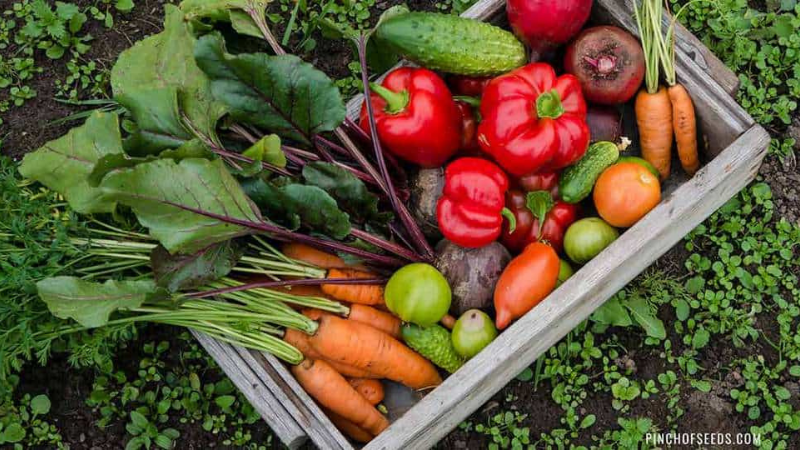
Fertilization is important for vegetable plants if you want to make them productive and produce more fruits. So, the question of “What vegetables should I fertilize?” is applicable for all vegetables.
It means you want to fertilize all vegetables you grow. However, the quantity of fertilizer will vary as per the vegetable type, especially the three essential nutrients.
Fertilization is especially necessary during the growing season. During the period, they need more nutrition than other times. It is because they retain the nutrients to grow gradually in the future and produce harvests.
Fertilizers improve the quality of your soil. Plants then absorb the essential nutrition from the soil surface. Simply put, you are not feeding the plants but the soil.
So, the more quality soil your garden has, the less fertilizer you need. But as vegetable plants requirement varies, you may infuse the soil with the wrong nutrients, which is unnecessary for the particular vegetable plants. So, you want to include the required fertilizers by remixing them with a perfect nutrition level.
So, saying “What vegetables should I fertilize?” sounds funny when you are knowledgeable enough about gardening.
Apart from that, some vegetable plants may need regular fertilizers, while some need occasional fertilizers. Most of them need fertilizers once in 6-8 weeks. So, while wondering about “What vegetables should I fertilize?” you want to maintain a regular schedule to fertilize the plants.
What Is The Best Fertilizer For Elephant Ears?
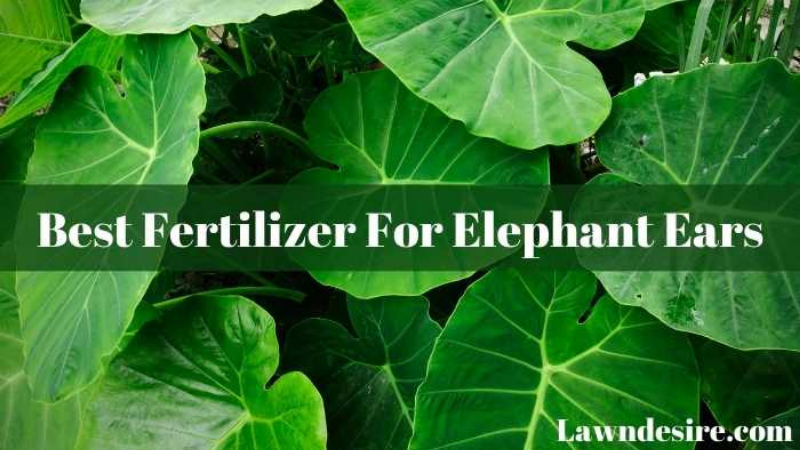
Do you know what is the best fertilizer for elephant ears? According to most garden experts, the best fertilizer for elephant ears is balanced with a 20-10-20 ratio.
Most elephant ear varieties are known as heavy feeders because they need more nutrients than other average plants. As a result, you need to transform your average quality garden soil into fertile, rich, and acidic soil with the right fertilizer.
So, while wondering about “what is the best fertilizer for elephant ears?” have you thought about which type of fertilizer you should choose for elephant ears? Slow-release, water-soluble fertilizers are the best fertilizer for elephant ears to promote vigorous growth.


Using only one time every month is okay for them. But make sure to increase the quantity during the growing season.
Therefore, you have learned which type of fertilizer and the fertilizer ratio regarding the question of “what is the best fertilizer for elephant ears?”
What Is A Good Natural Fertilizer For Vegetables?
Is this question popped out from your head ever: what is a good natural fertilizer for vegetables? Natural has no competitor, no matter how effective the unnatural is. That’s why we often want to use natural fertilizers for our vegetable garden.
So, what is a good natural fertilizer for vegetables? You can use various household items and even some common things collecting from your backyards.
Here are the few common items you can use in your garden as fertilizers when you wonder about “What is a good natural fertilizer for vegetables?”
| Epsom salt | Grass Clippings | Kitchen Scraps | Eggshells |
|---|---|---|---|
| Weeds | Compost Tea | Coffee Grounds | Seaweed Tea |
| Manure | Tree Leaves | Aquarium Water | Banana Peels |
Grass Clippings
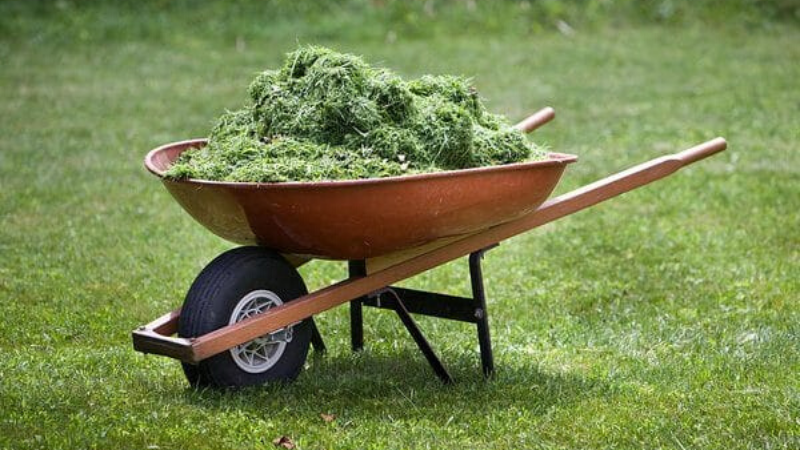
Nitrogen is readily available in grass clippings. You can use grass clippings from your organic lawn in your garden if you have one. This natural fertilizer keeps the soil moisturized and makes the soil fertile healthy.
Weeds
Weeds are great for vegetable plants. They work as a natural fertilizer for vegetable plants by retaining a decent level of moisture and preventing the build-up of pests, bugs, and insects.
Read More – Do Grass Clippings Make Good Fertilizer? How Do You Make Fertilizer From Grass Clippings?
Kitchen Scraps
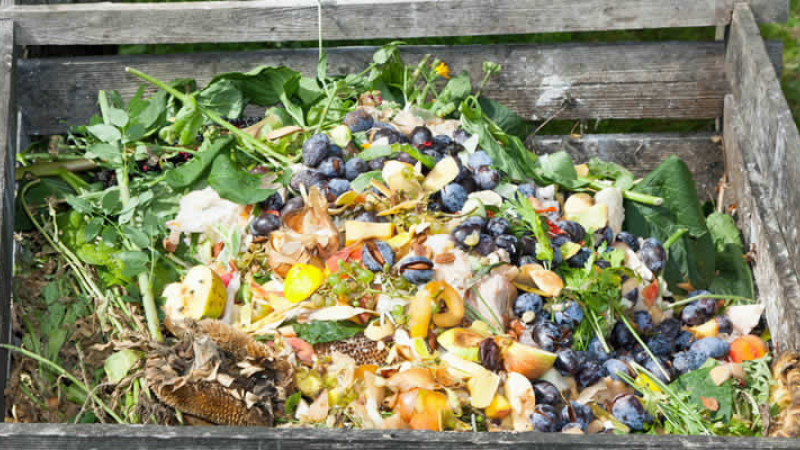
You can use food waste as a natural fertilizer as they contain various nutrients that your vegetable plants need. Different things such as spicy peppers, garlic, onion, eggshells, coffee grounds, nutshells, banana peels, etc., can be used as organic fertilizer.
Manure
If you want to improve the quality of your garden soil while providing essential nutrition, manure is a great choice. Garden experts recommend using cow manure for best results. They are popular for having balanced nutrition without excessive nitrogen.
Aquarium Water
Aquarium Water contains various nutrients that your vegetable plants need. Apart from boosting soil effectiveness, they also speed up plant growth.
So, these are all the important points about “What is a good natural fertilizer for vegetables?”
Best Fertilizers For Different Countries
Different countries have different types of soils. So, what is known as the best fertilizer for vegetable gardens in Canada may not be the best fertilizer for vegetable gardens in the UK.
For example, brown earth is the most common type of soil in the UK. That’s why the people of the UK use high nitrogen-based fertilizers for their vegetable gardens, and they think it is the best fertilizer for vegetable garden UK.
On the other hand, In Canada, potassium, urea, and phosphate fertilizers are three of the most widely used fertilizers. These fertilizers are known as the best fertilizer for vegetable gardens in Canada.
According to several reports, Ammonium phosphates and urea are the most commonly used fertilizers in Australia. Fertilizers that contain Osmocote Plus Trace Elements are known as the best fertilizer for vegetable garden Australia.
In Germany, urea is one of the most popular types of fertilizer used for vegetable gardens. This fertilizer provides vegetable plants the essential nitrogen to aid the process of photosynthesis. That’s why it is the best fertilizer for vegetable gardens in Germany.
Conclusion
So, which fertilizer for vegetables do you think is the best for different types? We have included a wide range of options; you can choose any of them based on your garden requirements.
Last update on 2023-01-28 / Affiliate links / Images from Amazon Product Advertising API
 |
 |
 |
 |

About Lee Safin
Lee Safin was born near Sacramento, California on a prune growing farm. His parents were immigrants from Russia who had fled the Bolshevik Revolution. They were determined to give their children a better life than they had known. Education was the key for Lee and his siblings, so they could make their own way in the world. Lee attended five universities, where he studied plant sciences and soil technologies. He also has many years of experience in the U.S. Department of Agriculture as a commercial fertilizer formulator.
Thoughts on "Which Are The Best Fertilizers For Vegetables | The Ultimate Guide"
 |
 |
 |
 |
Get FREE Gardening Gifts now. Or latest free toolsets from our best collections.
Disable Ad block to get all the secrets. Once done, hit any button below
 |
 |
 |
 |